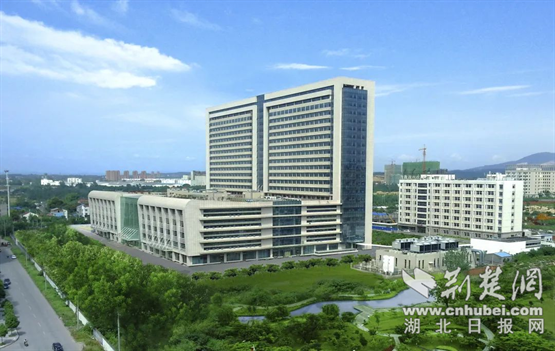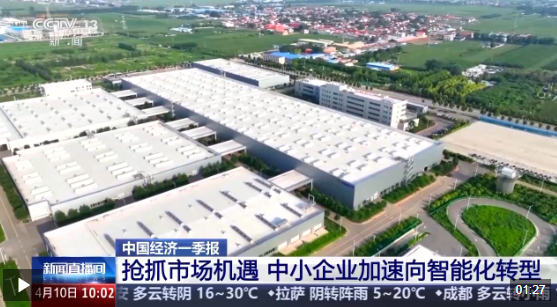US can't reverse re

Shi Yu/China Daily。
The world is watching closely as the United States and China engage in high-stakes bilateral trade negotiations. While the immediate outcomes may be modest tariff adjustments or managed market access in selected sectors, those can be best understood as tactical responses to deeper structural tensions rather than strategic breakthroughs. The broader implications for global trade lie not in the specifics of such negotiations but in the shifts they signify: away from multilateralism and US dollar hegemony, and toward a new, multipolar global trade architecture.。
At the heart of the current tensions is the US' growing anxiety over its relative decentering. Having enjoyed more than three decades of the unrivalled global hegemony since the end of the Cold War, the US now finds itself challenged by China's rising technological prowess, industrial scale and global integration. Under the Donald Trump administration, the US' anxiety has transformed into an explicitly transactional, bilateral trade posture.。
The US has been increasingly dismissing multilateral institutions — for long the instruments through which Washington shaped global norms and gained geopolitical advantage — in favor of "deal-making" with individual countries, and projected this bilateralism, steeped in zero-sum logic, as strength. By doing so, it has exposed its strategic incoherence.。
For example, through its trade policy, the US administration tried to simultaneously increase domestic manufacturing output — by penalizing imports — and maintain the dollar's status as the global reserve currency. These goals are not easily reconciled. A strong global reserve currency fuels persistent trade deficits. Penalizing imports through tariffs does disrupt this dynamic but not without costs. If the US were to genuinely reindustrialize at scale, it would need to import huge volumes of capital goods and intermediate inputs, exacerbating the very trade deficit it seeks to narrow. The paradox is that narrowing the trade deficit would first require widening it.。
The alternative is simply to reduce overall aggregate demand in the economy by slashing public expenditure. That doesn't look like happening.。
More fundamentally, the hollowing out of US manufacturing was never principally a result of trade agreements. It was a symptom of a deeper reorientation of US capital. Over the past four decades, US capital has been progressively reallocated from industrial production to financial engineering, creating asset bubbles, stock buybacks and speculative real estate investment. Wall Street flourished as "Main Street" faded. The share of GDP derived from financial services soared, while fixed capital formation in manufacturing stagnated. Reversing this trend would require reducing the political and institutional power of finance, an unpalatable proposition for any administration.。
Yet the US still manufactures products such as high-end equipment and advanced electronics, and develops or advances technologies like aerospace technology and military technology. But their production is capital-intensive, not labor-intensive, and they don't fill the physical or emotional void created by the offshoring of everyday consumer goods manufacturing that began in the 1970s. The sense of economic alienation among broad swathes of the American working class is as much cultural as it is economic. Tariffs may meet some symbolic need for control or retribution, but they cannot restore the industrial base to its past state.。
Also, the rest of the world is adapting to the US' contradictions. The weaponization of the dollar, through sanctions and arbitrary financial restrictions, has catalyzed a slow but deliberate move toward alternatives. Some emerging economies are accelerating trade settlements in their national currencies and exploring alternative clearing mechanisms. ASEAN member states, on the other hand, are reducing their reliance on the dollar in regional trade, particularly with China, Japan and the Republic of Korea.。
Even the oil-rich Gulf Cooperation Council member states are diversifying their trade currency strategies. The demand for the dollar as a trade settlement medium is gradually diminishing, which the European Central Bank sees as an opportunity for the euro to play a more prominent role in global trade. This fragmentation is not a retreat from but a reconfiguration of globalization.。
The new globalization that is emerging is multipolar in character, regional in structure and decentralized in operations. Institutions such as the World Trade Organization will likely persist, offering an overarching framework for administrative and policy guidance. But much of the practical work of trade governance — harmonization of standards, digital commerce rules and investment arbitration — will occur in regional and bilateral forums. In this regard, the US-China negotiations are not anomalous but emblematic.。
For many countries, especially in the Global South, the US' retreat from multilateralism poses risks but also creates new space. The growing importance of South-South trade, supported by new infrastructure financing and currency swap arrangements, is reducing the Global South's dependence on Western markets and institutions, with the Belt and Road Initiative creating corridors of trade and production that bypass traditional Western trade bottlenecks.。
The US remains a major consumer market, responsible for about 14 percent of global imports. But its share in the global economy is declining, reflecting both its waning economic clout and the diversification of global demand. For exporters, aligning with the new regional poles of growth — in East Asia, South Asia and parts of Africa — will become increasingly important. And supply chains will be restructured to hedge against geopolitical volatility, balancing proximity, cost and political risk.。
The Sino-US trade tango should not be seen as the primary determinant of the future of global trade. Rather, it is a mirror of the broader historical shift: from unipolarism to multipolarism, from dollar dominance to currency diversification, from multilateralism to mosaic regionalism. The world isn't de-globalizing; it is re-globalizing on new terms and under new rules.。
The author is an adviser to former Australian prime minister Kevin Rudd, adjunct professor at Queensland University of Technology and a senior research fellow at Taihe Institute.。
The views don't necessarily reflect those of China Daily.。
(责任编辑:焦点)
-
 中新社北京4月10日电(尹倩芸)当美国再挥关税“乱拳”,冲击全球交易次序,我国仍坚持镇定与定力,系列反制精准决断。曩昔一周,美方不断晋级对华关税。面临这种蛮横霸凌行径,中方9日发布《关于中美经贸关系若
...[详细]
中新社北京4月10日电(尹倩芸)当美国再挥关税“乱拳”,冲击全球交易次序,我国仍坚持镇定与定力,系列反制精准决断。曩昔一周,美方不断晋级对华关税。面临这种蛮横霸凌行径,中方9日发布《关于中美经贸关系若
...[详细]
-
 湖北日报讯 记者何凡、通讯员彭强、高超)夏橙是全球罕见的夏日老练脐橙,在素有“我国夏橙之乡”称谓的秭归县泄滩乡,随处可见金灿灿的夏橙缀满枝头。6月11日,记者从宜昌市柑桔科学研究所得悉,宜昌迎来夏橙丰
...[详细]
湖北日报讯 记者何凡、通讯员彭强、高超)夏橙是全球罕见的夏日老练脐橙,在素有“我国夏橙之乡”称谓的秭归县泄滩乡,随处可见金灿灿的夏橙缀满枝头。6月11日,记者从宜昌市柑桔科学研究所得悉,宜昌迎来夏橙丰
...[详细]
-
 “‘零钱包’很便当,省了许多兑换时刻,你们的热情服务让我感受到我国是个有爱的国家,像家相同的温暖!”来自埃塞俄比亚的机长卡沙在体会兴业银行“零钱包”服务时快乐地说。卡沙因航班方案常常往复我国,每次都要
...[详细]
“‘零钱包’很便当,省了许多兑换时刻,你们的热情服务让我感受到我国是个有爱的国家,像家相同的温暖!”来自埃塞俄比亚的机长卡沙在体会兴业银行“零钱包”服务时快乐地说。卡沙因航班方案常常往复我国,每次都要
...[详细]
-
 新华社天津6月11日电记者梁姊、杨文)我国内地最大船只融资租借中心——天津东疆归纳保税区第1000艘租借船只11日签约落地,然后正式参加世界千艘船只租借沙龙。此次签约落地的是一艘由新加坡制作的浮式天然
...[详细]
新华社天津6月11日电记者梁姊、杨文)我国内地最大船只融资租借中心——天津东疆归纳保税区第1000艘租借船只11日签约落地,然后正式参加世界千艘船只租借沙龙。此次签约落地的是一艘由新加坡制作的浮式天然
...[详细]
-
 荆楚网湖北日报网)讯通讯员 陈双燕)4月7日,2024年度湖北省级临床要点建造)专科名单正式发布,荆门市中心医院申报的肾内科、恢复医学科、整形美容科、心脏大血管外科、病理科、临床护理、放射印象科、超声
...[详细]
荆楚网湖北日报网)讯通讯员 陈双燕)4月7日,2024年度湖北省级临床要点建造)专科名单正式发布,荆门市中心医院申报的肾内科、恢复医学科、整形美容科、心脏大血管外科、病理科、临床护理、放射印象科、超声
...[详细]
-
 世界射击运动联合会官网音讯,本赛季世界杯德国慕尼黑站步手枪)11日继续进行,20岁的孙瑜洁夺得女子25米运动手枪冠军,拿下个人本赛季世界杯三连冠。在此前的世界杯阿根廷站和秘鲁站上,初度赢得世界杯冠军的
...[详细]
世界射击运动联合会官网音讯,本赛季世界杯德国慕尼黑站步手枪)11日继续进行,20岁的孙瑜洁夺得女子25米运动手枪冠军,拿下个人本赛季世界杯三连冠。在此前的世界杯阿根廷站和秘鲁站上,初度赢得世界杯冠军的
...[详细]
-
山西高中教师带34名毕业生方案骑行2900公里到海南,抵达许昌观赏胖东来后,正式敞开骑行之旅
 极目新闻记者 王鹏。6月11日,38岁的山西地舆教师兰会云带着34名学生组成的“朔风启行,琼岛逐梦”骑行队抵达河南许昌,他们观赏了闻名全国的胖东来超市,当地的许昌孔子书院为他们供给了免费餐食,还给每位
...[详细]
极目新闻记者 王鹏。6月11日,38岁的山西地舆教师兰会云带着34名学生组成的“朔风启行,琼岛逐梦”骑行队抵达河南许昌,他们观赏了闻名全国的胖东来超市,当地的许昌孔子书院为他们供给了免费餐食,还给每位
...[详细]
-
 2025年高考刚刚完毕,家长和考生的注意力转向自愿填写以及专业挑选上。教育部最近发布本年高校招生将新增29种新专业,其间,多学科穿插交融,人工智能的参加都是大势所趋。今日为你介绍蓄势起飞的“未来科技显
...[详细]
2025年高考刚刚完毕,家长和考生的注意力转向自愿填写以及专业挑选上。教育部最近发布本年高校招生将新增29种新专业,其间,多学科穿插交融,人工智能的参加都是大势所趋。今日为你介绍蓄势起飞的“未来科技显
...[详细]
-
 新华社北京4月8日电 商务部新闻发言人8日表明,中方注意到,美东时刻4月7日,美方要挟进一步对华加征50%关税,中方对此坚决对立。假如美方晋级关税办法落地,中方将坚决采纳反制办法保护本身权益。发言人说
...[详细]
新华社北京4月8日电 商务部新闻发言人8日表明,中方注意到,美东时刻4月7日,美方要挟进一步对华加征50%关税,中方对此坚决对立。假如美方晋级关税办法落地,中方将坚决采纳反制办法保护本身权益。发言人说
...[详细]
-
 3月28日晚,民生银行发布2023年年报显现,全年完成运营收入1408.17亿元,降幅1.16%;完成归属于母行股东的净利润358.23亿元,增幅1.57%。到2023年底,民生银行集团财物总额7.6
...[详细]
3月28日晚,民生银行发布2023年年报显现,全年完成运营收入1408.17亿元,降幅1.16%;完成归属于母行股东的净利润358.23亿元,增幅1.57%。到2023年底,民生银行集团财物总额7.6
...[详细]

 抢抓商场机会 中小企业加快向智能化、数字化、绿色化转型
抢抓商场机会 中小企业加快向智能化、数字化、绿色化转型 红外相机捕捉到豹猫卖萌日常 堵河源再添国家二级维护动物
红外相机捕捉到豹猫卖萌日常 堵河源再添国家二级维护动物 桂林挑行李回家的高考女生火了 暑期想找兼职或摆摊
桂林挑行李回家的高考女生火了 暑期想找兼职或摆摊 海上争锋 北约与俄罗斯互“秀肌肉”
海上争锋 北约与俄罗斯互“秀肌肉” 【“我国行记”第一季㉒】成都采耳太“上头”!让外国人沉浸的中式耳道SPA有多爽?
【“我国行记”第一季㉒】成都采耳太“上头”!让外国人沉浸的中式耳道SPA有多爽?
